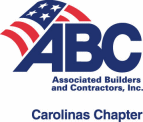In an unpublished decision released this past Tuesday, the N.C. Court of Appeals (“COA”) has construed a letter by an electrical subcontractor announcing its transition from a corporate entity to a limited liability company as a guarantee of obligations incurred by the corporate predecessor. The letter announced as follows:
Let it be known that on the 8th Day of September, 2006 WielTech Electric Company became a manager-managed Limited Liability Company between organizers Benjamin Joseph Wieland and Jennifer Dawn Fortenberry. From this date forward any and all business transactions, accounts or any other business relationship formed for WielTech Electric Co. by Tony C. Height, Catherine Robertson or any other person shall be transferred wholly into the newly formed LLC and the two individual organizers.
A supplier of WielTech sued the successor entity, its managers and others for past due invoices owed by WielTech. The supplier argued that the announcement letter constituted a personal guarantee satisfying North Carolina’s statute of frauds. For the non-lawyers who may be reading this, the “statute of frauds,” codified at NCGS c. 22-1 (2009), requires a “special promise to answer the debt … of another person” to be in writing. The successor entity and its managers defended the lawsuit on the grounds that the letter was too ambiguous to serve as a “special promise” to answer for the debts of the predecessor. The COA sided with the supplier, holding that the language in the announcement letter stating that all accounts “shall be transferred wholly” to the individual organizers constituted a payment guarantee satisfying the statute of frauds.

- Image by Naypong via FreeDigitalPhotos.net
I don’t want to speculate too much about the motivations of the organizers of the successor LLC in the WielTech decision, other than to say that based on an affidavit I have read in the record on appeal, WielTech and its principals may have been maneuvering to salvage their business after being stiffed by a bankrupt general contractor to the tune of just under $200,000. In any event, and to the extent the WielTech folks were attempting to wrap-up the business affairs of one corporate entity and transfer assets to another entity without also assuming the obligations of the predecessor, suffice to say, mission most definitely not accomplished.
The takeaway? In an environment where getting paid for labor provided and materials furnished isn’t getting any easier, creditors and their attorneys will aggressively utilize all legal remedies available to them — piercing the corporate veil, successor liability theories such as the “mere continuation” doctrine, personal guarantees, the Uniform Fraudulent Transfer Act, etc. — to track down sources of potential recovery. To those trying to avoid payment obligations, caveat scriptor. That letter you want to send to retain your customer base in the midst of a corporate transition might say a whole lot more than you think.








